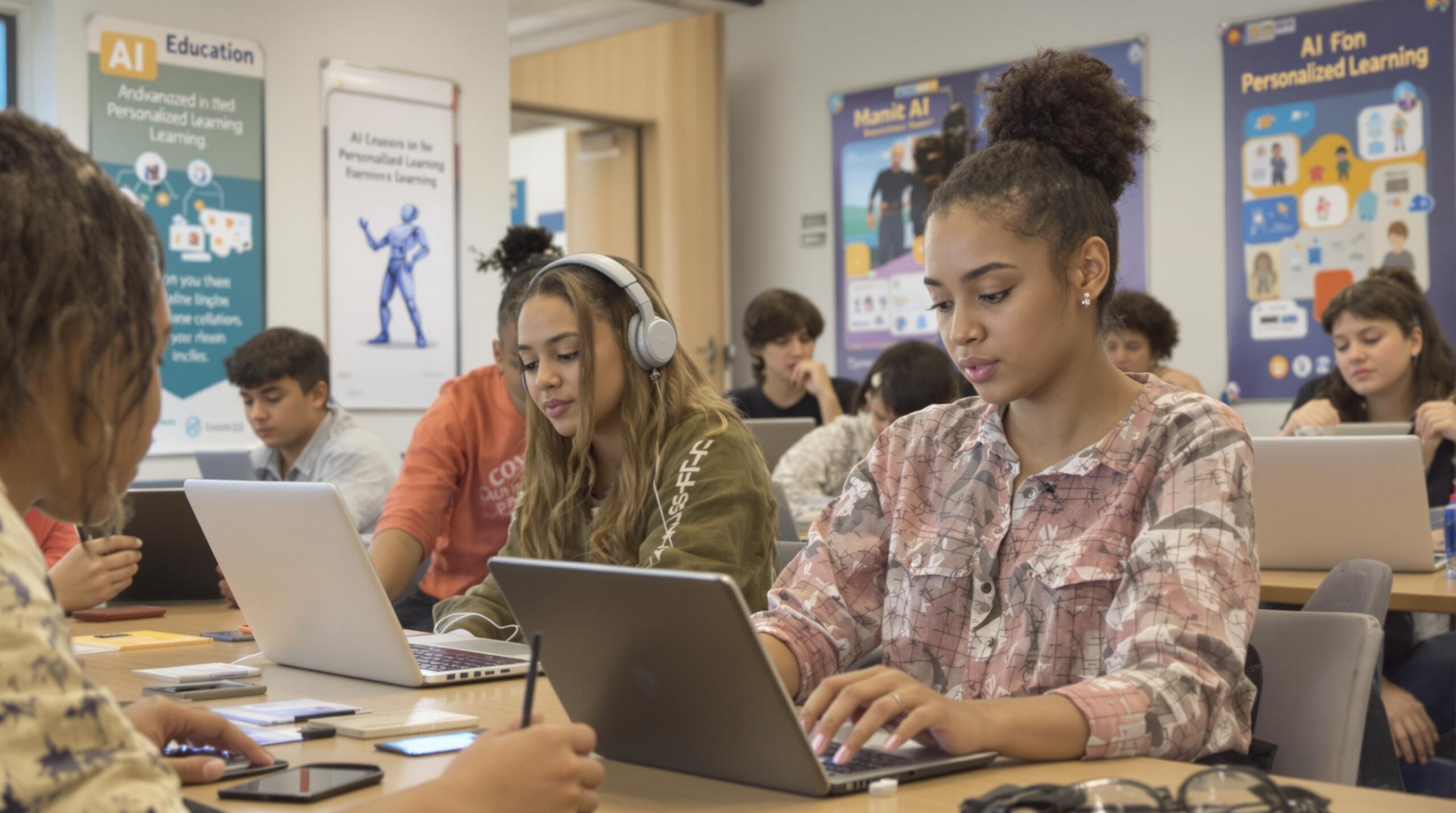Artificial Intelligence (AI) technology is reshaping the educational landscape. Personalized learning platforms have begun leveraging AI to deliver adaptive and effective learning experiences. From K-12 classrooms to corporate training programs, AI-based personalization addresses unique learner needs, ensuring better engagement and improved outcomes.
The Evolution of Personalized Learning
Personalized learning tailors educational content and pace to individual preferences and abilities. The concept isn’t new, but technological advances have accelerated its adoption. Traditional classrooms often follow a one-size-fits-all model, but AI-driven platforms break away from this approach.
AI gathers and analyzes vast amounts of data on each learner. This data-driven approach allows AI systems to build profiles highlighting strengths, weaknesses, and learning styles. Educators and students then receive insights and recommendations aligned with each individual’s requirements.
How AI Powers Adaptive Learning
AI utilizes machine learning algorithms to assess student interactions in real-time. These algorithms identify patterns in responses, engagement, and content mastery. By analyzing this data, platforms adjust lesson plans, quizzes, and resources to optimize progress.
Natural language processing (NLP) technology enables AI to evaluate written answers and discussions. This helps gauge comprehension beyond simple multiple-choice questions. As AI interprets students’ language and arguments, it can recommend targeted support or enrichment activities.
Furthermore, AI can automate routine grading, freeing educators to focus on deeper teaching and mentoring roles. Instant feedback loops facilitate active improvement, as learners know immediately where to direct their efforts.
Benefits of AI-Driven Personalization
AI-driven platforms offer a range of benefits for students, teachers, and educational institutions. One primary advantage is enhanced engagement. Adaptive lessons maintain student interest by presenting appropriately challenging material, reducing boredom and frustration.
Personalized feedback empowers learners, letting them see their progress and identify specific skills for improvement. AI’s ability to highlight gaps ensures that intervention happens before misunderstanding becomes ingrained.
For instructors, AI-powered analytics provide valuable classroom overviews. Teachers can easily identify students who are struggling and adjust course content accordingly. Moreover, institutions benefit from comprehensive data insights, informing decisions on resource allocation and curriculum design.
Examples of AI in Personalized Learning Platforms
Several edtech companies now integrate AI into their learning platforms. Duolingo, a popular language-learning app, employs AI to tailor lesson difficulty and review schedules. The system adapts in real time, responding to users’ strengths and weaknesses.
DreamBox Learning uses AI to customize math lessons for K-8 students. The software analyzes keystrokes and problem-solving strategies to adjust instruction immediately. Another notable platform, Carnegie Learning, incorporates AI to personalize math practice and offer data-driven teaching recommendations.
Corporate learning is also evolving through AI. Platforms like Coursera and LinkedIn Learning employ AI to suggest courses aligned with users’ career goals and skills gaps. These tools recommend content that keeps learners engaged and progressing toward their targets.
Challenges Facing AI-Driven Personalized Learning
While AI technology offers transformative benefits, challenges remain. Data privacy and security are top concerns for educators and policymakers. Platforms must safeguard student information, ensuring compliance with regulations like FERPA and GDPR.
Bias in AI algorithms can inadvertently disadvantage certain students. If training data lacks diversity, recommendations may reinforce existing disparities. Developers must continuously audit AI systems for fairness, accuracy, and inclusivity.
Some educators worry that over-reliance on AI might undermine human teaching expertise. While automation streamlines certain tasks, human mentors remain essential for fostering critical thinking and emotional skills. A hybrid approach, combining AI with human guidance, may offer the best outcomes.
Ethical and Practical Considerations
Transparent AI operations are crucial to earning trust. Educators and students must understand how algorithms make personalized decisions. Establishing clear standards for transparency, explainability, and accountability supports ethical AI integration in learning systems.
Cost is another consideration. Schools and businesses investing in AI-driven platforms require ongoing financial resources for updates and technical support. Preparing teachers to adopt and maximize new technologies also demands comprehensive professional development.
The Future of AI in Education
The AI revolution in personalized learning is just beginning. Advances in deep learning, computer vision, and sentiment analysis promise richer educational experiences. As AI matures, platforms could incorporate virtual reality, gamification, and real-world simulations for immersive, personalized learning.
Collaboration among educators, technologists, parents, and policymakers is vital for scalable, ethical deployment. Stakeholders must set shared goals, define success metrics, and advocate for equitable access to AI-driven learning tools.
AI technologies can also help close opportunity gaps. By supporting differentiated instruction at scale, personalized platforms can reach learners with diverse backgrounds and abilities. With continued innovation and responsible leadership, the educational landscape will become more dynamic and inclusive.
Conclusion
AI-powered personalized learning platforms are redefining education across age groups and industries. Adaptive technology fosters better engagement, targeted interventions, and holistic growth for every learner. The next era of learning has arrived.
As AI systems become more advanced and accessible, educators must balance innovation with ethical practices. By addressing challenges head-on, society can unlock the full potential of personalized learning and empower future generations. The journey toward truly student-centered education continues, fueled by the transformative power of artificial intelligence.


